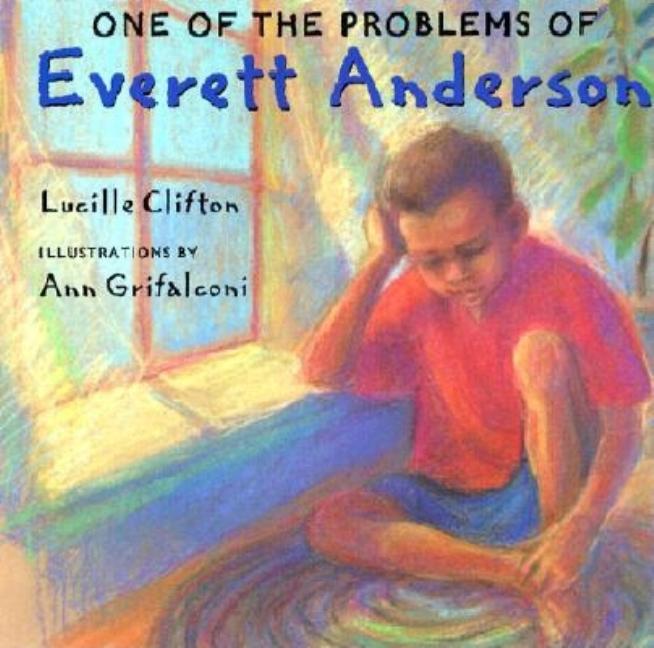Book Descriptions
for One of the Problems of Everett Anderson by Lucille Clifton and Ann Grifalconi
From Cooperative Children's Book Center (CCBC)
“A room can be lonely / when a boy not grown, / sees his new friend Greg / with a scar or bruise mark on his leg.” Everett Anderson feels sad, wondering if it’s true that his friend falls down the stairs and hurts himself every day. Adult readers will recognize the signs of an abused child immediately, but Everett comes to this realization slowly, wondering how he should respond. When he finally is able to talk to his own mother about it, she assures him he has done the right thing, that she’ll take charge, and that Everett can return to being the best friend he can be to Greg. Clifton’s gentle, understated story will provide a good, safe place for opening a discussion with children about ways to respond to difficult situations. (Ages 4–8)
CCBC Choices 2002 . © Cooperative Children's Book Center, Univ. of Wisconsin - Madison, 2002. Used with permission.
From the Publisher
A sensitive exploration of a difficult problem by an award winning author/illustrator team.
"One day in school, just out of the blue,"
Everett whispers, "Greg started to cry,
and I went over to ask him why
and he looked up and sighed,
'I can't tell you.'
And he had the saddest, saddest face
like he was lost in the loneliest place."
Everett Anderson doesn't know what to do when his friend Greg comes to school with bruises, or when Greg cries and can't explain what's wrong. Should Everett tell the teacher, or would that only make things worse for Greg? Everett's sister thinks maybe it's none of their business, but he can't stop worrying about his friend. Then, when Everett Anderson tells his mother, he opens a window of possibility.
This tender story perfectly evokes the confusion, concern--and eventual hope--one little boy feels in the face of a very difficult problem.
"One day in school, just out of the blue,"
Everett whispers, "Greg started to cry,
and I went over to ask him why
and he looked up and sighed,
'I can't tell you.'
And he had the saddest, saddest face
like he was lost in the loneliest place."
Everett Anderson doesn't know what to do when his friend Greg comes to school with bruises, or when Greg cries and can't explain what's wrong. Should Everett tell the teacher, or would that only make things worse for Greg? Everett's sister thinks maybe it's none of their business, but he can't stop worrying about his friend. Then, when Everett Anderson tells his mother, he opens a window of possibility.
This tender story perfectly evokes the confusion, concern--and eventual hope--one little boy feels in the face of a very difficult problem.
Publisher description retrieved from Google Books.


